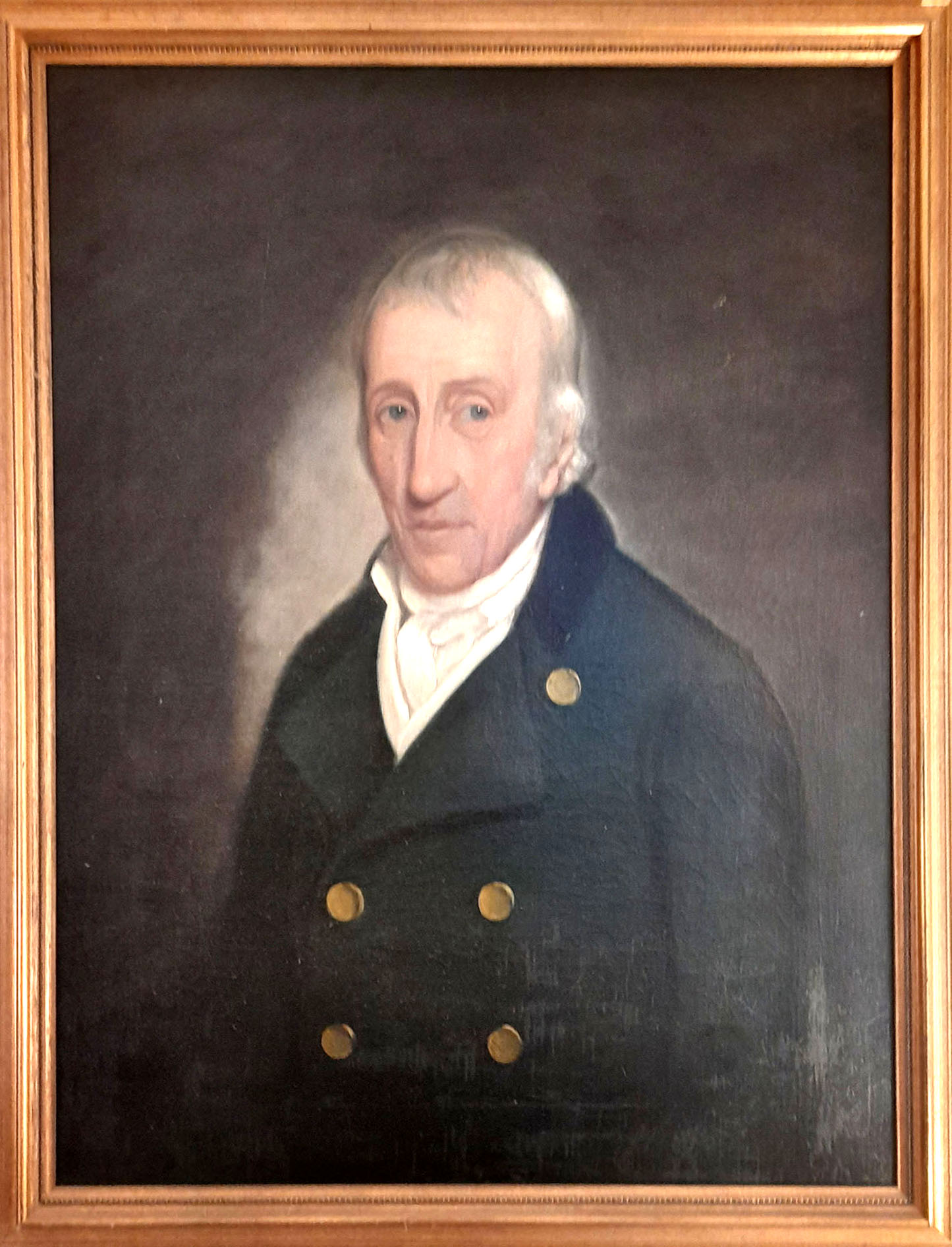Water supply contractor who became first Clerk of the Stroudwater Company.


Benjamin Grazebrook was born early in 1731, the youngest child of another Benjamin. The Benjamin born in 1731 married an Ann and they had five children, four boys and one girl, christened in Stroud in the 1750s and 60s. One, a Benjamin, died in infancy, four survived: Joseph, Thomas, Mary and a second Benjamin.
Benjamin Grazebrook gave his occupation as plumber when he bought shares in the Stroudwater Navigation. In those days a plumber did not just fix dripping taps; he worked with lead – think church roofs and guttering. Benjamin, it turns out, was also an entrepreneur involved in the engineering of water supplies. About 1767, he was responsible for piping water from Gainey's Well to nearby houses in Stroud, and he and his son Thomas engineered the water supply for Brecon.
In 1774, the first page of Minute Book 1 of the Company of Proprietors of the Stroudwater Navigation records that Benjamin Grazebrook was appointed clerk, keeper of the books and under-surveyor of the navigation at a salary of £50 per annum. He proved essential to the building of the canal. He was certainly kept busy. The minute book is full of references to all the tasks he was to perform: acquiring stone, buying land, investigating problems, meeting with the surveyors - the list seems endless. His cash book showed he also handled all the cash for building the canal as well, some £30,000, equivalent to millions now. By 1776, his eldest son Joseph had replaced him as clerk, but Benjamin became the surveyor. Up to this point there had been a whole procession of surveyors, none of whom lasted. Although he was kept very busy supervising the building, he was not slow to take advantage of the opportunities the canal offered.
Examination of the first “tonnage book” (which records the canal company’s income from goods carried on the canal) shows that Grazebrook and Co. had at least two barges, the Nancy and the Stroud Trader, which traded coal from the Midland coalfields to Stroud. They also ran boats regularly from Gloucester and Bristol as carriers – a bit like Parcel Force or DHL. This was not the limit of Benjamin’s involvement in the canal as he was also a shareholder having brought six shares at a cost of £100 each.
By 1787 he was wealthy enough to become a partner in the local bank in Stroud. In those days banking was a local business which relied, at least in part, on the banker's reputation as well as his wealth. Benjamin was a church warden and involved in the refurbishment of the church in Stroud and was one of the local businessmen who donated considerable funds for this purpose. By 1798 his eldest son Joseph joined him as a partner and the bank became Grazebrook and Co. Banking eventually became Joseph's main occupation and he was reputed to be a good banker.
By the time Benjamin died in 1810 he was a rich man and left a considerable estate, including seven local properties. He also left shares in the Brecon water works and in the Stroudwater Navigation, and at least £3,450 in cash, the money alone being the equivalent of somewhere between 2 and 3 million pounds at today's values. The will also said that he bequeathed ‘the residue to my son Joseph', so there was probably more than was listed in the will. But his lasting legacy is the canal that he was instrumental in driving forward, and he is also commemorated in the naming of a street in Stroud.
Contributed by Jane Bethell.